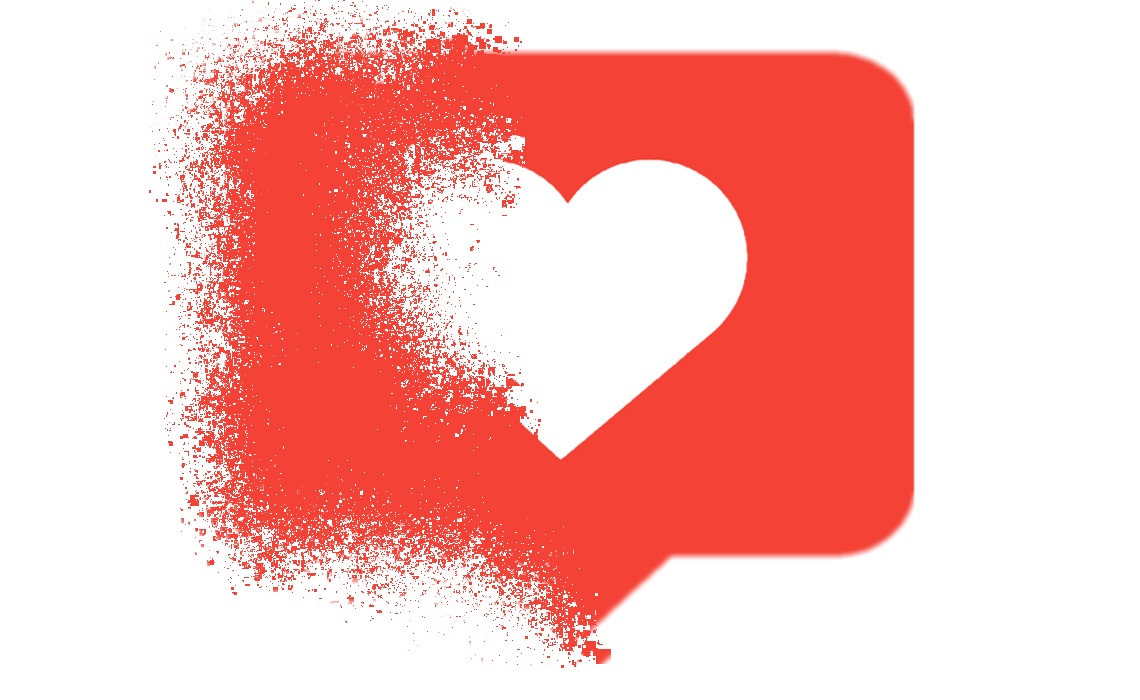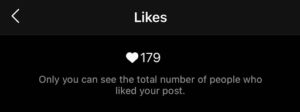Insights
Like It or Not, Instagram Is Changing.

By now, every Millennial and Gen-Zer should know that Instagram is well on its way to removing likes. The social media app that changed online shopping, invented meme culture and made the social media influencer mainstream has been talking about making this change to the platform for years.
The Instagram queen herself, Kim Kardashian West, spoke at the New York Times DealBook conference in early November about the impact social media has on mental health, and mentioned that Instagram was working on removing likes. As it often is with Kim, what she says, happens. Just about a week after the DealBook conference, my Instagram likes disappeared. I was one of the thousands of users in the United States selected to test drive the latest version of the app.
The past decade is known for the social media boom, and with Instagram’s decision to remove likes, it seems like the next decade will be focused on how to coexist with and find authenticity in social media. If Instagram decides to permanently make the change, it could define how we use social media going forward.
 On the surface, Instagram users won't see a huge difference. Now, users won’t be able to see the number of likes on posts from people they follow, but they will still be able to see the likes their own posts receive.
Instagram CEO, Adam Mosseri, announced this ‘no-likes’ version of the platform as a response to the backlash social media platforms have received over the past few years for having a negative effect on users’ mental health. Numerous studies have shown that social media use can cause serious issues when it comes to sleep disruption and productivity loss. These studies also found that those who spend more than three hours a day on social media are susceptible to mental health issues such as depression, anxiety or low self-esteem.
Excessive social media use can also cause problems with our mental social reward systems that help with decision-making and reward-related behavior. Just like eating a piece of cake, seeing Instagram likes roll in can cause our brain to have a reaction that is similar to taking a drug.
On the surface, Instagram users won't see a huge difference. Now, users won’t be able to see the number of likes on posts from people they follow, but they will still be able to see the likes their own posts receive.
Instagram CEO, Adam Mosseri, announced this ‘no-likes’ version of the platform as a response to the backlash social media platforms have received over the past few years for having a negative effect on users’ mental health. Numerous studies have shown that social media use can cause serious issues when it comes to sleep disruption and productivity loss. These studies also found that those who spend more than three hours a day on social media are susceptible to mental health issues such as depression, anxiety or low self-esteem.
Excessive social media use can also cause problems with our mental social reward systems that help with decision-making and reward-related behavior. Just like eating a piece of cake, seeing Instagram likes roll in can cause our brain to have a reaction that is similar to taking a drug.
 Adam Alter, a professor at New York University, said this is caused by the unpredictability of social media. Likes are not guaranteed, so each time we get a like or notification our brains get a burst of dopamine. This creates a positive reward reaction and encourages us to go back for more, jump-starting a habitual cycle. A lot of the mental health stress that comes from social media is also due to the authenticity that populates the platform. Comparing yourself to a highlight reel of your friends’ lives or an influencer whose job it is to look good on Instagram can take a toll on one’s mental health.
A deeper dive revealed that this is not Instagram’s first attempt at making the platform a safer space. In fact, Instagram has been backtracking for years to figure out how to solve the problems the platform itself has caused.
Adam Alter, a professor at New York University, said this is caused by the unpredictability of social media. Likes are not guaranteed, so each time we get a like or notification our brains get a burst of dopamine. This creates a positive reward reaction and encourages us to go back for more, jump-starting a habitual cycle. A lot of the mental health stress that comes from social media is also due to the authenticity that populates the platform. Comparing yourself to a highlight reel of your friends’ lives or an influencer whose job it is to look good on Instagram can take a toll on one’s mental health.
A deeper dive revealed that this is not Instagram’s first attempt at making the platform a safer space. In fact, Instagram has been backtracking for years to figure out how to solve the problems the platform itself has caused.
 There are other theories about why the likes are disappearing, other than Instagram attempting to repair what it broke. Some believe it’s strictly a business move and question how this change can help mental health if each person can still see their own likes.
Reactions to this change have been mixed. Many––including those who make money from the number of likes they receive on Instagram––support the change and are excited to see the platform remove likes. On the other end of the spectrum, rapper Nicki Minaj is leaving the platform for the lack of likes. Actress Skai Jackson says users should be able to opt-in and out of likes.
If this year has taught us anything, it's that established social media platforms are not immune from users logging off and deleting their accounts in waves. Earlier this year, Edison Research reported that people were leaving Facebook by the millions. With the recent changes to Instagram, celebrities like Nicki Minaj leaving the platform and the rise of other social media platforms like TikTok, it’s easy to see a future where users flee from Instagram to the next up and coming app. If Instagram decides to implement this ‘no-likes’ change, it could trigger the start of the next social media migration.
There are other theories about why the likes are disappearing, other than Instagram attempting to repair what it broke. Some believe it’s strictly a business move and question how this change can help mental health if each person can still see their own likes.
Reactions to this change have been mixed. Many––including those who make money from the number of likes they receive on Instagram––support the change and are excited to see the platform remove likes. On the other end of the spectrum, rapper Nicki Minaj is leaving the platform for the lack of likes. Actress Skai Jackson says users should be able to opt-in and out of likes.
If this year has taught us anything, it's that established social media platforms are not immune from users logging off and deleting their accounts in waves. Earlier this year, Edison Research reported that people were leaving Facebook by the millions. With the recent changes to Instagram, celebrities like Nicki Minaj leaving the platform and the rise of other social media platforms like TikTok, it’s easy to see a future where users flee from Instagram to the next up and coming app. If Instagram decides to implement this ‘no-likes’ change, it could trigger the start of the next social media migration.
A ‘No-Like’ Platform
 On the surface, Instagram users won't see a huge difference. Now, users won’t be able to see the number of likes on posts from people they follow, but they will still be able to see the likes their own posts receive.
Instagram CEO, Adam Mosseri, announced this ‘no-likes’ version of the platform as a response to the backlash social media platforms have received over the past few years for having a negative effect on users’ mental health. Numerous studies have shown that social media use can cause serious issues when it comes to sleep disruption and productivity loss. These studies also found that those who spend more than three hours a day on social media are susceptible to mental health issues such as depression, anxiety or low self-esteem.
Excessive social media use can also cause problems with our mental social reward systems that help with decision-making and reward-related behavior. Just like eating a piece of cake, seeing Instagram likes roll in can cause our brain to have a reaction that is similar to taking a drug.
On the surface, Instagram users won't see a huge difference. Now, users won’t be able to see the number of likes on posts from people they follow, but they will still be able to see the likes their own posts receive.
Instagram CEO, Adam Mosseri, announced this ‘no-likes’ version of the platform as a response to the backlash social media platforms have received over the past few years for having a negative effect on users’ mental health. Numerous studies have shown that social media use can cause serious issues when it comes to sleep disruption and productivity loss. These studies also found that those who spend more than three hours a day on social media are susceptible to mental health issues such as depression, anxiety or low self-esteem.
Excessive social media use can also cause problems with our mental social reward systems that help with decision-making and reward-related behavior. Just like eating a piece of cake, seeing Instagram likes roll in can cause our brain to have a reaction that is similar to taking a drug.
 Adam Alter, a professor at New York University, said this is caused by the unpredictability of social media. Likes are not guaranteed, so each time we get a like or notification our brains get a burst of dopamine. This creates a positive reward reaction and encourages us to go back for more, jump-starting a habitual cycle. A lot of the mental health stress that comes from social media is also due to the authenticity that populates the platform. Comparing yourself to a highlight reel of your friends’ lives or an influencer whose job it is to look good on Instagram can take a toll on one’s mental health.
A deeper dive revealed that this is not Instagram’s first attempt at making the platform a safer space. In fact, Instagram has been backtracking for years to figure out how to solve the problems the platform itself has caused.
Adam Alter, a professor at New York University, said this is caused by the unpredictability of social media. Likes are not guaranteed, so each time we get a like or notification our brains get a burst of dopamine. This creates a positive reward reaction and encourages us to go back for more, jump-starting a habitual cycle. A lot of the mental health stress that comes from social media is also due to the authenticity that populates the platform. Comparing yourself to a highlight reel of your friends’ lives or an influencer whose job it is to look good on Instagram can take a toll on one’s mental health.
A deeper dive revealed that this is not Instagram’s first attempt at making the platform a safer space. In fact, Instagram has been backtracking for years to figure out how to solve the problems the platform itself has caused.
The K-Cup of Social Media
Back in 2014, it was estimated that discarded K-Cups, the convenient pods that coffee addicts, like myself, pop into Keurig machines each morning, could wrap around the Earth more than 10 times. Six years later, despite recently released recyclable K-Cups, think about how many coffee pods are floating in the ocean or piling up in landfills around the world. In 2015, John Sylvan, the creator of the still popular K-Cup said “I feel bad sometimes that I ever did it,” as he looked back on the environmental havoc the tiny product wreaked on the globe. In its own way, Instagram is like the K-Cup. Instagram has been working to fix the problems it created since even before I joined the platform in early 2013. With every new change made to its algorithm, Instagram has been working to push down inauthentic content and bring real life to the forefront by prioritizing realistic content. When Instagram stole the 24-hour story feature from Snapchat, the company was attempting to invite more “in the moment” content on the platform and lessen the volume of curated, perfectionist content. In the latest attempt to populate feeds with positive messages, the platform is attempting to minimize how much we value a quick double-tap and the validation of others. Deleting likes, adding a story feature, and bringing authentic content to the top of your feed are just small pieces of Instagram’s overall plan to weed out inauthenticity and alleviate mental health issues related to the app.Like or Dislike?
 There are other theories about why the likes are disappearing, other than Instagram attempting to repair what it broke. Some believe it’s strictly a business move and question how this change can help mental health if each person can still see their own likes.
Reactions to this change have been mixed. Many––including those who make money from the number of likes they receive on Instagram––support the change and are excited to see the platform remove likes. On the other end of the spectrum, rapper Nicki Minaj is leaving the platform for the lack of likes. Actress Skai Jackson says users should be able to opt-in and out of likes.
If this year has taught us anything, it's that established social media platforms are not immune from users logging off and deleting their accounts in waves. Earlier this year, Edison Research reported that people were leaving Facebook by the millions. With the recent changes to Instagram, celebrities like Nicki Minaj leaving the platform and the rise of other social media platforms like TikTok, it’s easy to see a future where users flee from Instagram to the next up and coming app. If Instagram decides to implement this ‘no-likes’ change, it could trigger the start of the next social media migration.
There are other theories about why the likes are disappearing, other than Instagram attempting to repair what it broke. Some believe it’s strictly a business move and question how this change can help mental health if each person can still see their own likes.
Reactions to this change have been mixed. Many––including those who make money from the number of likes they receive on Instagram––support the change and are excited to see the platform remove likes. On the other end of the spectrum, rapper Nicki Minaj is leaving the platform for the lack of likes. Actress Skai Jackson says users should be able to opt-in and out of likes.
If this year has taught us anything, it's that established social media platforms are not immune from users logging off and deleting their accounts in waves. Earlier this year, Edison Research reported that people were leaving Facebook by the millions. With the recent changes to Instagram, celebrities like Nicki Minaj leaving the platform and the rise of other social media platforms like TikTok, it’s easy to see a future where users flee from Instagram to the next up and coming app. If Instagram decides to implement this ‘no-likes’ change, it could trigger the start of the next social media migration.